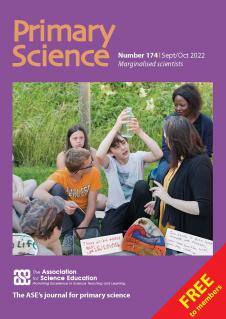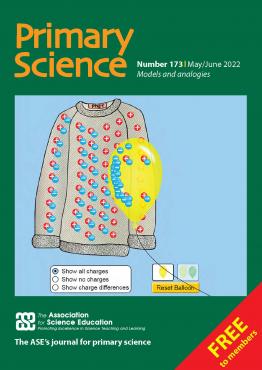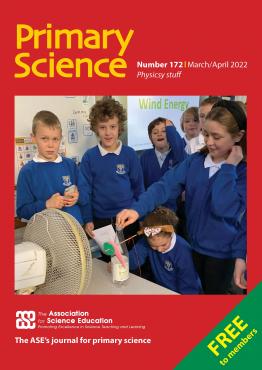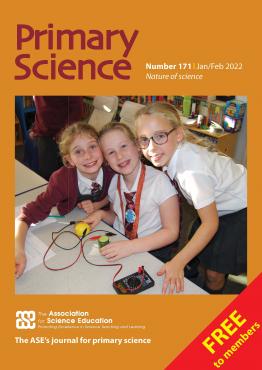Primary Science 174 Marginalised scientists
Issue 174 | Published September 2022

Overview
The articles on ‘marginalised scientists’ in this issue offer a superb snapshot of some inspiring work by colleagues, supporting diversity and inclusivity in primary science.
We look at the ground-breaking work of Lara Lalemi and the Creative Tuition Collective in Bristol. This work is insightful and seeks to give a flavour of how bespoke focused tuition in STEM can be experienced by young disenfranchised and all-too-often marginalised learners. This issue also includes a workable exemplar (plus a convenient link for additional support materials) for those readers wishing to replicate or trial a similar approach in their classrooms.
David Allen and Alex Sinclair give us an introduction to their popular book Superhero Scientists. This excellent work continues to inform and delight. An insight into its development, together with a sample chapter, is included for members. This is complemented beautifully by Louise Couceiro's insight into how biographies of women in science can inspire and engage. Both articles remind us of the important impact resources can have, especially in promoting inclusion, diversity and equality.
We also have an article from Jane Essex, focusing on special educational needs and disabilities and additional support needs. Crucially, Jane shares her personal insight into the benefits for all children of fairer and more equal access to science. Envisioning a better science future with and for all children is also a key feature in Fay Lewis’s article on the advantage of discussing not so much ‘what’ children might want to do when they grow up, but rather to imagine ‘who’ they want to be.
The issue then broadens to the international arena for a closer look at collaborative experience and pedagogical cross-cultural sharing with Jules Pottle. This is an intriguing article on how international collaboration on classroom practice can influence and inspire. Similarly, Kate Sutton’s work on maker education, with its inherent support of maintaining indigenous and sometimes almost lost skills though cultural collaboration, then goes on to support the idea of how international pedagogy, this time originating in the USA, can be used here in the UK to the benefit of all young learners of science.
Finally, the In conversation... piece, written by our own Leigh Hoath, is an interview with one of the UK’s key proponents of maker education, Dr Alison Buxton. Alison’s reflections on challenging how we traditionally engage with science in classrooms and the benefits true inclusivity brings very much speak for themselves.



